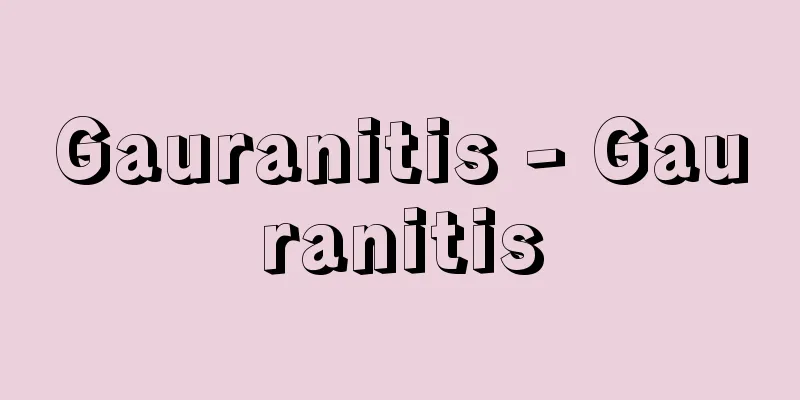Born April 14, 1954 in Brownsville, Texas. American science fiction writer. He emerged as a pioneer of cyberpunk in the mid-1980s. He is also known as the editor of Mirrorshades: The Cyberpunk Anthology (1986). After graduating from the University of Texas in 1976, he made his debut with "Man-Made Self" in the anthology Lone Star Universe. His first novel, Involution Ocean (1977), is set on a dystopian planet and follows the adventures of its inhabitants as they try to escape their troubled lives by becoming addicted to drugs. His novel Schismatrix (1985) explores the opposing philosophies of Shapers, who genetically modify themselves, and Mechanists, who modify themselves using artificial devices. His other works include Islands in the Net (1988), which deals with huge information networks, and the non-fiction The Hacker Crackdown: Law and Disorder on the Electronic Frontier (1992). His work The Difference Engine (1990), co-written with William Gibson, imagines the rise of the computer age in the 19th century. Stirling
Stirling, James Born: 1692. Gurdon
[Died] December 5, 1770. Edinburgh. British mathematician. He entered Oxford University (1711) but did not take the entrance oath, and in 1715, he refused to take the oath required to continue research at the university and become a scholar, and left Oxford, never graduating. That same year, he went to Venice to teach mathematics, through a friend. In 1718, he submitted his first paper, "Newton's Differential Calculus," to the Royal Society through Newton. This was published in the Royal Society Bulletin the following year, and his name as a mathematician became widely known. In mid-1724, he returned to Scotland, and settled in London a few months later. In 1726, he became a member of the Royal Society on Newton's recommendation, and in the same year, he began teaching at a school called Little Tower Street Academy. In 1830 he published "Differential Calculus, with an Explanation of the Sum and Interpolation of Infinite Series", which was his greatest work, and included the Newton-Stirling central difference formula, Stirling's formula for approximating factorials, and Stirling numbers of the first and second kind. In 1835 he was asked to reform and manage the Scottish Mining Company, and thereafter devoted most of his energy to this mining business. In 1846, the death of C. Maclaurin created a vacancy in the professorship of mathematics at the University of Edinburgh, but he was unable to take over because he was a Jacobite. Stirling
Stirling A unitary local government (councillion area) in central Scotland, UK. Its administrative seat is Stirling. In 1975, it became part of the Central County in a municipal reorganization, and in 1996, it became a unitary local government. The south bank of Loch Katrine and the River Forth belong to the former County of Stirlingshire, and the north to the former County of Perthshire. The west faces Loch Lomond, and the Highland Boundary Fault, which divides the lowlands and highlands, runs through the north and west. Stirling, a river port city on the right bank of the River Forth, developed around its castle on a hill. It became a royal city in the 12th century, and in 1226, Alexander II, King of Scotland, made the castle a royal castle. In 1314, Robert I the Bruce defeated Edward II's English army at Bannockburn in the southern suburbs, establishing Scottish independence. After that, it prospered as one of the major cities in Scotland until the mid-16th century, and the castle became the royal residence, but it lost its importance after James VI (→James I), King of Scotland, succeeded to the English throne in 1603. Today it is the financial centre of the state. Beef cattle breeding and dairy farming are popular in the rural areas of the north and west. Grain cultivation and livestock farming are carried out in the alluvial lowlands of the southeast. Heavy industry developed in the 19th century in the coalfields in the southeast, but these are now almost depleted, and the service sector is the main industry. Tourism is the most important industry in the scenic highlands. Industries such as electronics, paper and alcohol brewing are also located in the state. Area: 2,187 km2 . Population: 87,810 (2006 estimate). Stirling
Stirling, Sir James Born: April 22, 1926, Glasgow
[Died] June 25, 1992. London British architect. Full name: Sir James Frazer Stirling. Graduated from the Department of Architecture at the University of Liverpool in 1950. Established his own architectural firm in 1956. From 1956 to 1963 he was partnered with James Gowan, and from 1971 onwards with Michael Wilford. In the 1960s he designed many university buildings, such as the Faculty of Engineering at the University of Leicester (1959-63) and the Faculty of History at the University of Cambridge (1967), and his rough expression combines glass and brick. In the 1970s he presented many plans for museums, such as the Kunstmuseum Cologne (1975), and pursued expression through contextualism in the new building of the State Museum in Stuttgart (1977-84) and the Crow Gallery (1987). He received the Royal Institute of British Architects Gold Medal in 1980 and the Pritzker Prize in 1981. In 1992 he was knighted for his contributions to architecture. Stirling
Starling, Ernest Henry Born: April 17, 1866, London
[Died] May 2, 1927. Kingston Harbour. British physiologist. Lecturer at Guy's Hospital, London from 1889 to 1899. Professor of physiology at University College, London in 1900. From 2002, together with W. Behlis, he proved that secretin secreted from epithelial cells of the duodenal mucosa promotes the secretion of pancreatic juices. In this way, he named substances secreted into the blood from specific tissues and acting on distant organs as hormones, thus laying the foundation for hormone science. In 1924, together with E. Banney, he proved that renal tubules reabsorb water. His famous cardiac law proves that cardiac output increases or decreases depending on the ventricular volume in the relaxation period before contraction. He arrived in Japan in 1911. Stirling
Stirling, Sir James [Born] 1791
[Died] April 22, 1865.
British admiral. He joined the Royal Navy in 1803 and served in the West Indies and other areas, then served as colonial commander and governor of Western Australia for ten years from 1828. When the Crimean War broke out in 1853, he was deployed as commander of the China and East Indies fleet, and entered Nagasaki in pursuit of a Russian fleet near Japanese waters. He negotiated with the shogunate and concluded the Seven Articles of Peace and Amity (Treaty of Peace and Amity) on October 14, 1854 (August 23, 1855), which opened the ports of Nagasaki and Hakodate to foreigners. Stirling
Stirling, James Hutchinson Born: 22 June 1820, Glasgow
[Died] March 19, 1909, Edinburgh British philosopher. Pioneer of neo-idealism in Britain. Initially a doctor, he turned to philosophy, and was the first to introduce Hegelian philosophy to Britain, becoming a central figure in its study in Britain. His main work is The Secret of Hegel (1865). Source: Encyclopaedia Britannica Concise Encyclopedia About Encyclopaedia Britannica Concise Encyclopedia Information |








![Trompe l'oeil (English spelling) [France]](/upload/images/67cc607be65bc.webp)

